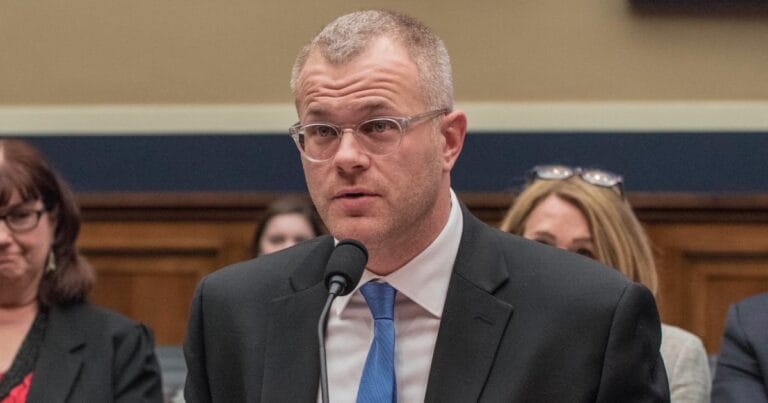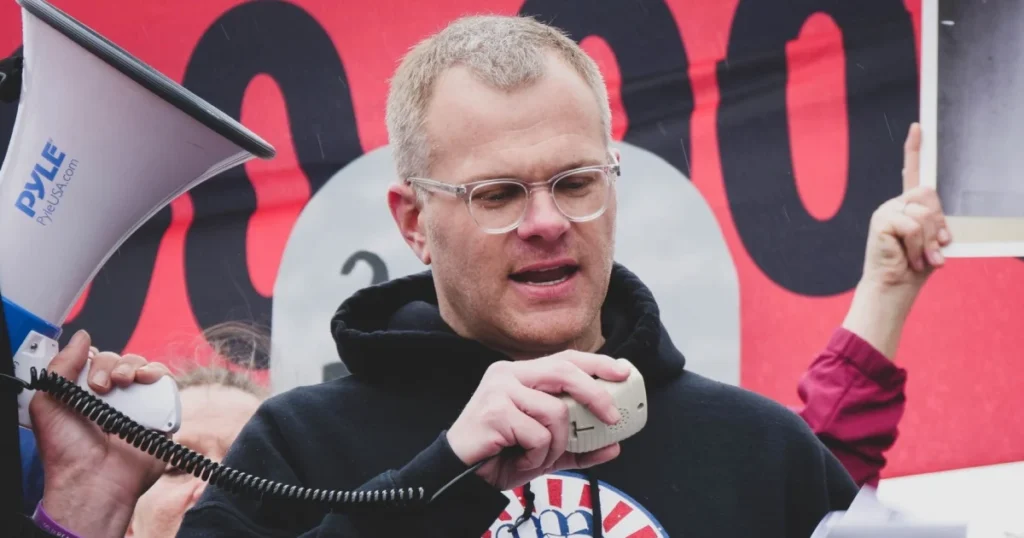Why I Advocate for Mental Health (And You Should, Too)
 Author:
Ryan Hampton
Author:
Ryan Hampton
 Editor:
Patrick Nagle
Editor:
Patrick Nagle

As a young man growing up in the 80s, mental health was about as alien as Mars to me. Like many Americans, I didn’t have any concept of what “mental health” meant. Was it hypnosis? Psychotherapy on a fancy couch? Padded rooms, shock treatment, and straitjackets? The idea of seeing a medical provider about your emotions seemed, well—crazy.
However, times change, and my perspective did, too. I was raised to share my family’s firm belief in finding the silver lining in every challenging situation, but I also met many people who didn’t have an optimistic outlook. For them, it wasn’t a choice. It was just the way their minds worked. One of my closest friends shared that they struggled with depression. Telling them to “look on the bright side” didn’t make any sense.
What is mental health parity?
Finally, someone I respect pointed out how separating the different types of healthcare doesn’t help people stay healthy. He said, “Your brain is part of your body. Why isn’t mental health care treated just like physical health care?” I knew he was right. Mental health parity—that is, giving equal coverage and resources for mental health—is vital for our nation’s wellness.
Mental health parity is actually a federal law, but it’s rarely enforced. Insurance companies, hospitals, and other health care providers ignore this federal law. They give the minimum of care instead of actually helping people heal. This isn’t only unethical—it’s against the law. Taking action is the only way to ensure that our friends, children, and loved ones get the care they need. Short term solutions aren’t the answer. We need to champion solutions that make sense.

Staying silent on mental health keeps people in pain
Without mental health parity, Americans struggle to take care of their children, perform well at their jobs, and contribute to their communities. In 2019-2020, one in five adults experienced a mental health disorder. That’s equivalent to 20.78% of adults, or over 50 million Americans. If more than 50 million people had a broken leg, we’d completely overhaul the healthcare system.
When it comes to substance use recovery, the numbers are even worse. Treatment of any kind, from overdose reversing medications to long-term support, simply isn’t available. Most of the 30 million people in the U.S. who have substance use disorder don’t get treatment. 15.35% of adults had a substance use disorder in 2022. 93.5% of them did not receive any form of medical support.
Speak out against the stigma
Mental health is a sticky subject for many people. The stigma is so great that many folks would rather suffer—and even lose their lives—rather than ask for help. We can all play a role in speaking up about mental health. Breaking the silence helps create equitable systems for everybody. It reclaims our power in healthcare, so that big insurance companies are working for us, instead of doling out the minimum care for life-threatening conditions. Wellness means access: accessing healthcare for your whole self—not just your physical body. We all deserve that.

Why do I talk about mental health?
I talk about mental health because I know that just speaking up saves lives. Millions of people are affected. In turn, that affects the people around them. Stigma and silence create a ripple effect that robs us of happiness, productivity, and health. Imagine a world where access to healthcare wasn’t a struggle! Instead of trying to navigate a complicated, often hostile health care system, you could get the help you needed, when you need it, in a way that makes sense for you.
With one in five Americans experiencing mental health issues, we all know and love somebody who is impacted. Talking about mental health makes it possible for the people we care about to get the help they need. If we let this silent health crisis continue, it will keep affecting all of us. Breaking the stigma saves lives. Mental health parity can help millions of people, both nationally and in our hometowns. We all deserve access to healthcare that makes sense—including mental health care.
After meeting with the exceptional team at MentalHealth.com, I learned about the organization’s promising vision and commitment to eliminating barriers to high-quality care by expanding mental health care access. Given our shared alignment, I will be volunteering as a Public Oversight Committee Advisor to the organization (more on this later). Together, we can—and we will—break down the long-standing barriers to accessible mental health support for everyone.
– Ryan
We are a health technology company that guides people toward self-understanding and connection. The platform provides reliable resources, accessible services, and nurturing communities. Its purpose is to educate, support, and empower people in their pursuit of well-being.
Ryan Hampton is a national addiction recovery advocate and person in sustained recovery after 10 years of opioid use. He’s worked with leading nonprofits and authored three bestselling books on the overdose crisis.
Latest

Categories
- Opinion (137)

